AI can bring agricultural revolution in Bangladesh
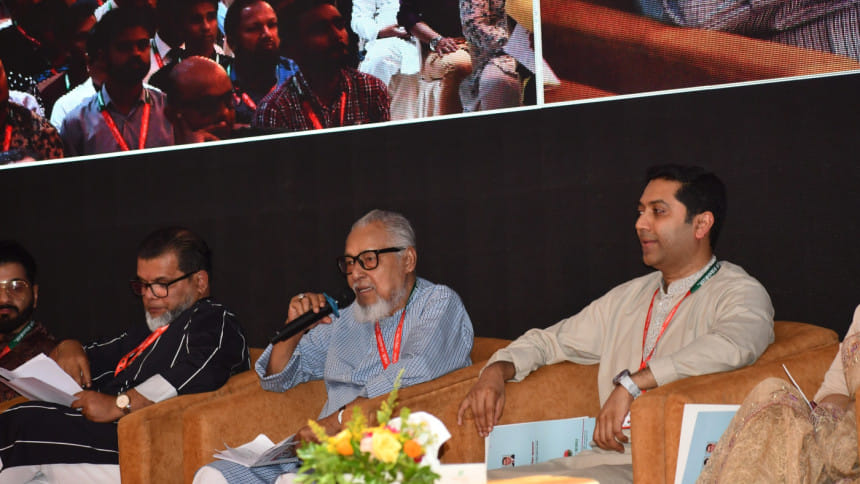
The use of artificial intelligence and modern technology can bring about revolutionary change in Bangladesh's agricultural sector and transform the country into a strong exporter of agricultural produce, experts said at a seminar.
At the same time, farmers' rights must be protected: fair prices for their produce must be ensured so that they are encouraged to produce.
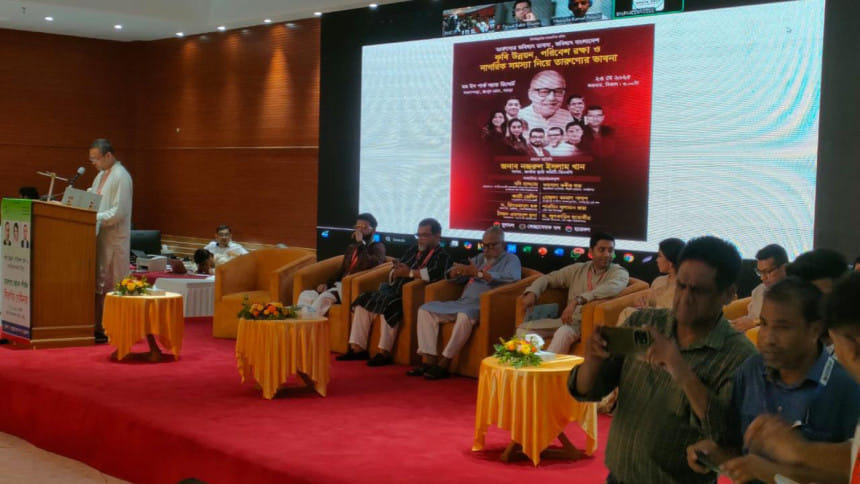
For this, effective policies and investments are needed, they said at a seminar titled "Youth Voices on Agriculture, Environment and Civic Issues" organised today by three wings of BNP -- Chhatra Dal, Jubo Dal and Swechchhasebak Dal.
The event was organised as part of a month-long initiative by the BNP to actively engage the youth in the policymaking process in light of the party's 31-point outline announced.
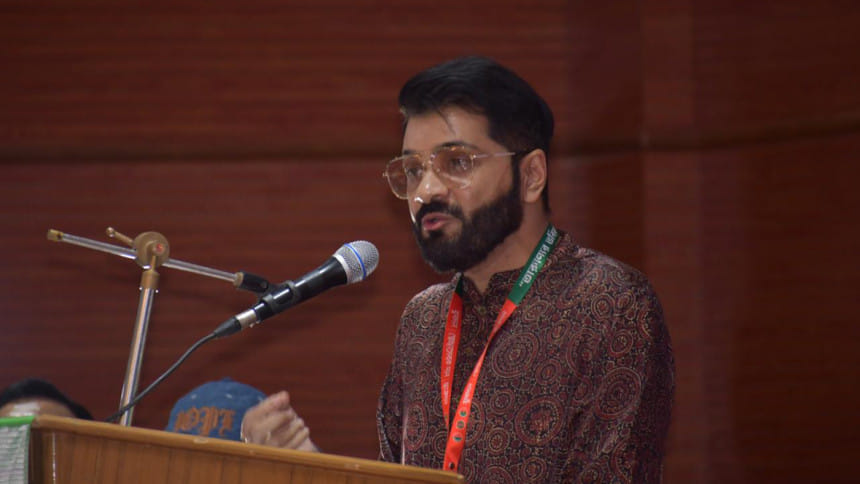
The seminar started with a detailed description of how the use of AI and technology can bring about radical changes in Bangladesh's agriculture sector by Zulkarin Jahangir, assistant professor at North South University.
By using AI technology, farmers can increase crop production tenfold on the same land, get weather forecasts, and know when to cultivate crops and when to harvest them for better prices.
"For me, the success of technology means when a farmer can reduce his production costs by using it at the right time or when a fisherman in the haor region receives an early flood warning."
Using AI, farmers can get better quality harvests: it can inform the optimum amount of nutrients to use.
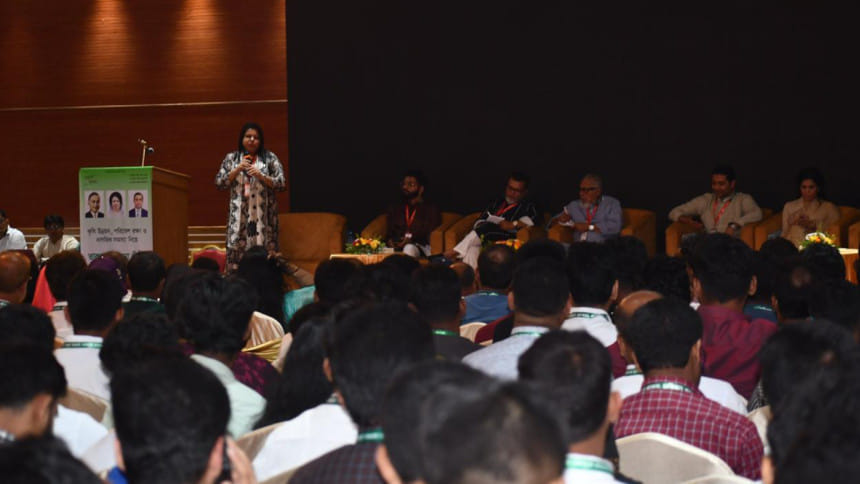
"That is, the right quantity of seeds to plant, the right volume and combination of fertilisers, pesticides and water to use. It can revolutionise our farming practices and make us a solid exporter of agricultural produce."
AI can be used to provide farmers with profitable selling strategies by predicting market demand and prices, said Jahangir, also a consultant for UNDP and UNESCO on AI and digitisation.
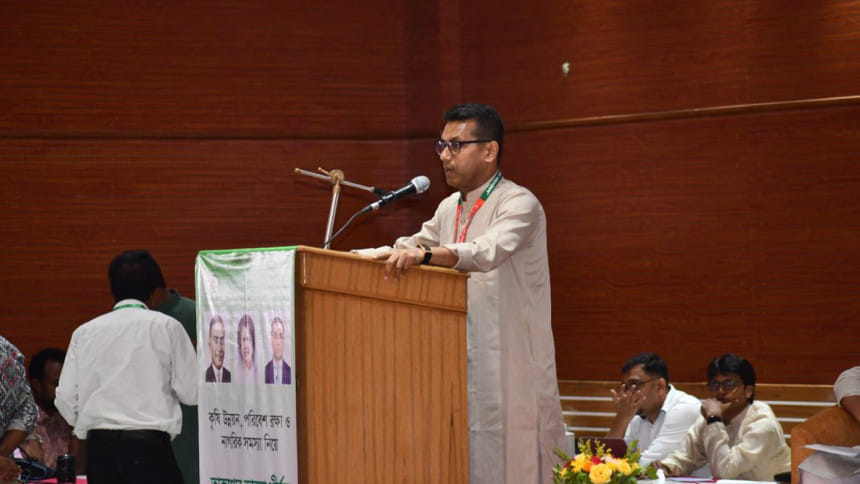
Through a mobile app, farmers will get notifications of their individual subsidy allocation, which will ensure transparency in delivery as it would cut off middlemen from the process.
"AI will act as a tool of technology and transparency to make agriculture sustainable and profitable," Jahangir said, while expressing hope that the Farmers Card initiative announced by the BNP in its 31-point charter will be heavy on AI use.
Mostofa Kamal Palash, founder of abohawa.com, emphasised the importance of accurate and early weather forecasting in minimising the impact of cyclones, hailstorms and lightning strikes on farmers and rural communities.
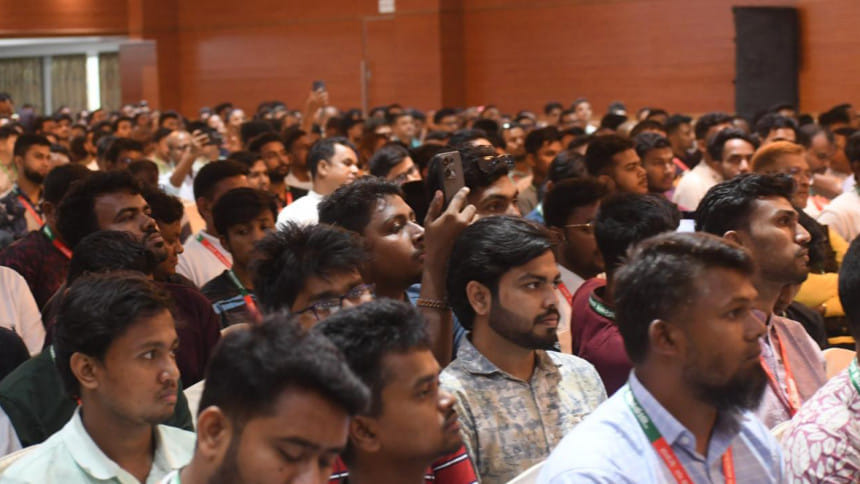
He called for modernising Bangladesh's meteorological systems, including integrating hyperspectral satellite imagery and drone-based afforestation in newly emerged coastal lands.
There is also an urgent need for human resource development in the Bangladesh Meteorological Department, he added.
Nationalist Democratic Movement Chairman Bobby Hajjaj emphasised bringing insurance benefits to farmers.
He also called for river restoration, afforestation, waste management and pollution control to protect the environment.
Smart cities and public transport will address urban challenges such as traffic congestion, housing and green spaces.
Hajjaj, also a senior lecturer at NSU, proposed a "Climate Resilience Fund" and strict environmental laws to combat climate change.
Journalist Kazi Jesin urged the BNP policymakers to involve youths in the farm sector. "By incorporating modern technologies, we can take our farming sector forward," she added.
Many of the urban facilities can be extended to the rural areas to slow down the urbanisation process in Bangladesh, said Faysal Kabir Shuvo, strategic analyst at Australia's Sydney Water.
Push towards renewable energy can create tens of thousands of jobs for the youth, said Sharmin Sultan Joya, chief people officer at GPH Ispat.
She urged the future government to increase the use of solar energy and biogas by decreasing fuel imports.
"The mention of agriculture immediately brings to mind the name of the Proclaimer of Independence, the pioneer of nationalism, Shaheed President Ziaur Rahman, who, by personally digging canals at the grassroots level, laid the foundation for Bangladesh's agricultural revolution," said BNP Standing Committee Member Nazrul Islam Khan.
Today's irrigation system in Bangladesh is a continuation of those agricultural reforms, he said.
"Agriculture is the lifeblood of Bangladesh's economy, and our farmers are the main strength of this sector. The BNP has adopted comprehensive plans to ensure their rights and entitlements."
If voted to power, the BNP will ensure fair prices for agricultural produce, while government procurement centres will be established in every union. Crop, livestock, fisheries, and poultry insurance will be introduced, with subsidies if necessary, he added.
The main purpose of this event is to involve experts and professionals who are not directly involved with BNP but can make important contributions to policymaking, said Mahdi Amin, acting BNP chairman's adviser, who conceptualised the monthlong initiative.
"We want to create the best policies for the future, especially by empowering and integrating the youth. We want to hear the opinions of the best people in formulating the best policies for the country, so that we can be ready if the people give BNP a chance to form the government," he added.
IBA Professor Md Ridhwanul Haq and Bangladesh Jatiya Dal Chairman Syed Ehsanul Huda also spoke.

 For all latest news, follow The Daily Star's Google News channel.
For all latest news, follow The Daily Star's Google News channel. 



Comments